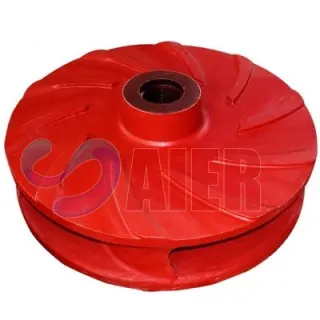Nov . 04, 2024 13:08 Back to list
slurry pump impeller
Understanding Slurry Pump Impellers
Slurry pumps are essential components in various industrial processes, specifically designed to transport mixtures of solids and liquids. Among the crucial parts of a slurry pump, the impeller plays a significant role in determining the pump's efficiency, performance, and longevity. This article will explore the types, functions, and importance of slurry pump impellers.
The impeller is the rotating part of a slurry pump that imparts energy to the slurry through its kinetic and hydrodynamic design. Slurry, typically comprising a mixture of water and solid particles, presents unique challenges due to its abrasive nature. Therefore, the design of the impeller must accommodate both the hydraulic requirements and the characteristics of the slurry being handled.
There are several types of impeller designs commonly used in slurry pumps, including open, semi-open, and closed impellers. Open impellers have no shroud, allowing for easy passage of large particles but may have lower efficiency due to fluid bypassing the blade tips. Semi-open impellers provide a balance, offering some protection against wear while allowing for the movement of solids. Closed impellers, enclosed by a front and back shroud, are more efficient and effective at handling fluids with smaller particles but are more susceptible to blockages caused by larger solids.
slurry pump impeller

Material selection is another critical aspect of impeller design. Impellers must be made of durable materials that can withstand the wear and tear from abrasive particles in the slurry. Common materials include high chrome alloys, rubber linings, and other specialized composites that provide resistance to corrosion and abrasion. The choice of material not only affects the pump's longevity but also its performance under various operational conditions.
Proper selection and maintenance of slurry pump impellers are vital for ensuring optimal performance
. Factors such as wear, erosion, and particulate damage can lead to reduced efficiency and increased energy consumption. Regular inspections and scheduled replacements can mitigate these issues, ensuring that the pump operates smoothly and effectively.In industrial applications such as mining, wastewater treatment, and chemical processing, the choice of impeller design and material can significantly impact the overall success of pumping operations. By understanding the specifics of slurry pump impellers, companies can make informed decisions that enhance their operational efficiency and reduce downtime.
In conclusion, slurry pump impellers are crucial for the effective movement of slurry in various applications. Their design, material selection, and maintenance play pivotal roles in the overall performance of slurry pumps. Investing in the right impeller can lead to improved efficiency, reduced operational costs, and extended equipment life, making it an essential consideration for industries relying on slurry pumping solutions.
-
High Quality Slurry Pump Seals Reliable China Suppliers & Manufacturers
NewsJun.24,2025
-
High Quality Portable Submersible Slurry Pump Supplier & Manufacturer from China
NewsJun.10,2025
-
Slurry Pump Parts Manufacturer – High Quality Rubber Spare Parts from China
NewsJun.10,2025
-
High Quality 1/3 HP Submersible Sump Pump with Vertical - Reliable Supplier & Factory Price
NewsJun.10,2025
-
High-Efficiency Centrifugal Slurry Pumps India
NewsJun.10,2025
-
High Quality Warman Centrifugal Slurry Pump Suppliers & Factory
NewsJun.10,2025
